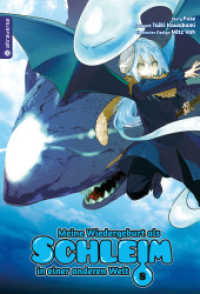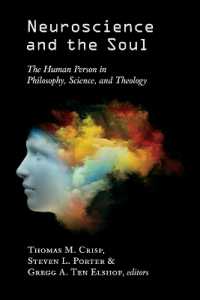基本説明
Surveying many examples of standard natural experiments, regression-discontinuity designs, and instrumental-variables designs, Dunning highlights both the strengths and potential weaknesses of these methods.
Full Description
This unique book is the first comprehensive guide to the discovery, analysis, and evaluation of natural experiments - an increasingly popular methodology in the social sciences. Thad Dunning provides an introduction to key issues in causal inference, including model specification, and emphasizes the importance of strong research design over complex statistical analysis. Surveying many examples of standard natural experiments, regression-discontinuity designs, and instrumental-variables designs, Dunning highlights both the strengths and potential weaknesses of these methods, aiding researchers in better harnessing the promise of natural experiments while avoiding the pitfalls. Dunning also demonstrates the contribution of qualitative methods to natural experiments and proposes new ways to integrate qualitative and quantitative techniques. Chapters complete with exercises and appendices covering specialized topics such as cluster-randomized natural experiments, make this an ideal teaching tool as well as a valuable book for professional researchers.
Contents
1. Introduction: why natural experiments?; Part I. Discovering Natural Experiments: 2. Standard natural experiments; 3. Regression-discontinuity designs; 4. Instrumental-variables designs; Part II. Analyzing Natural Experiments: 5. Simplicity and transparency: keys to quantitative analysis; 6. Sampling processes and standard errors; 7. The central role of qualitative evidence; Part III. Evaluating Natural Experiments: 8. How plausible is as-if random?; 9. How credible is the model?; 10. How relevant is the intervention?; Part IV. Conclusion: 11. Building strong research designs through multi-method research.








